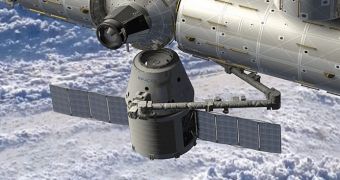With the retirement of the space shuttles looming ahead, the American space agency is desperately trying to shorten the massive gap in orbital capabilities it will experience over the next few years. In a bid to do so, it announced the four companies whose projects will receive NASA funding this year.
There are four winners in this competition, which is meant to foster the design and development of space capsules capable of delivering cargo to the International Space Station (ISS). Later on, the same designs would need to undergo conversions so that they can carry humans to space as well.
Private companies would have gotten there eventually anyway, but NASA is seeking to boost the process, by identifying key players in the emerging private spaceflight industry, and awarding them with grants to speed up the process.
This is precisely what happened on Monday, April 18, when officials announced the winners of the second round of funding of the NASA Commercial Crew Development (CCDev) program.
About $269.3 million were divided among the Boeing Company, Space Exploration Technologies (SpaceX), Sierra Nevada Corporation and Blue Origin. These are the major winners of CCDev.
NASA will now conclude Space Act Agreements with each of these four corporations. The contracts will run from April 2011 to May 2012, and they contain very specific milestones that the companies involved need to reach in time.
“We're committed to safely transporting US astronauts on American-made spacecraft and ending the outsourcing of this work to foreign governments,” Charles Bolden, the NASA Administrator, explained in a statement.
“These agreements are significant milestones in NASA's plans to take advantage of American ingenuity to get to low-Earth orbit, so we can concentrate our resources on deep space exploration,” added the official, as quoted by Space.
“It's safety that's going to drive when we're ready to fly. That will be our highest priority in terms of schedule,” said CCDev program manager Ed Mango, who is based at the NASA Kennedy Space Center (KSC), in Florida.
The biggest winner of the new announcements is Boeing, which will get $92.3 million in funding. Louisville, Colorado-based Sierra Nevada Corp. manged to attract about $80 million in NASA awards, for the development of the Dream Chaser spacecraft.
Hawthorne, California-based SpaceX, which already has orbital flight capabilities due to its Falcon 9/Dragon combo, comes in third in this round of funding, with $75 million.
Kent, Washington-based Blue Origin was awarded $22 million for the development of a pusher escape system, and for continuing to improve their New Shepard launch vehicle.

 14 DAY TRIAL //
14 DAY TRIAL //